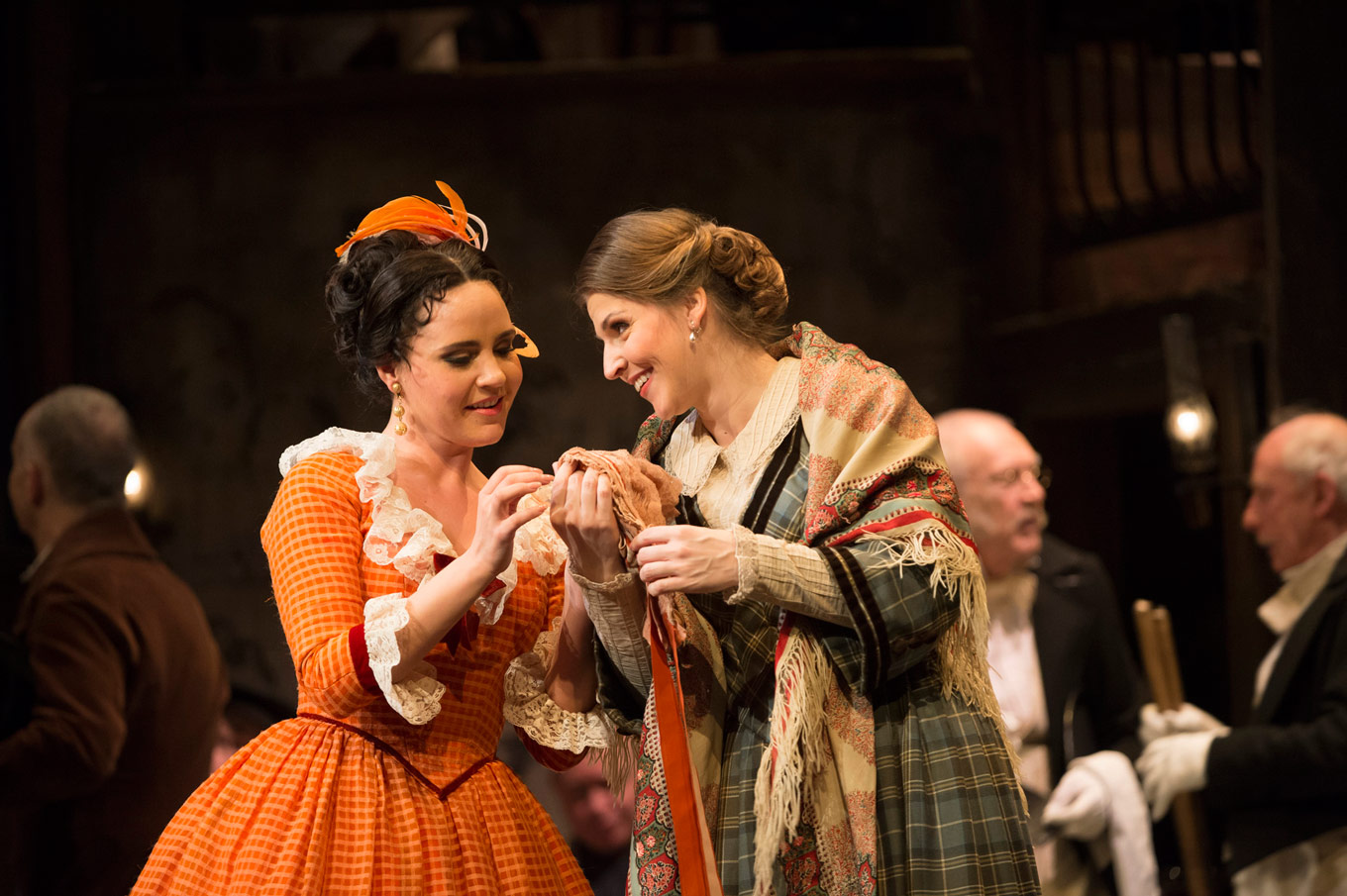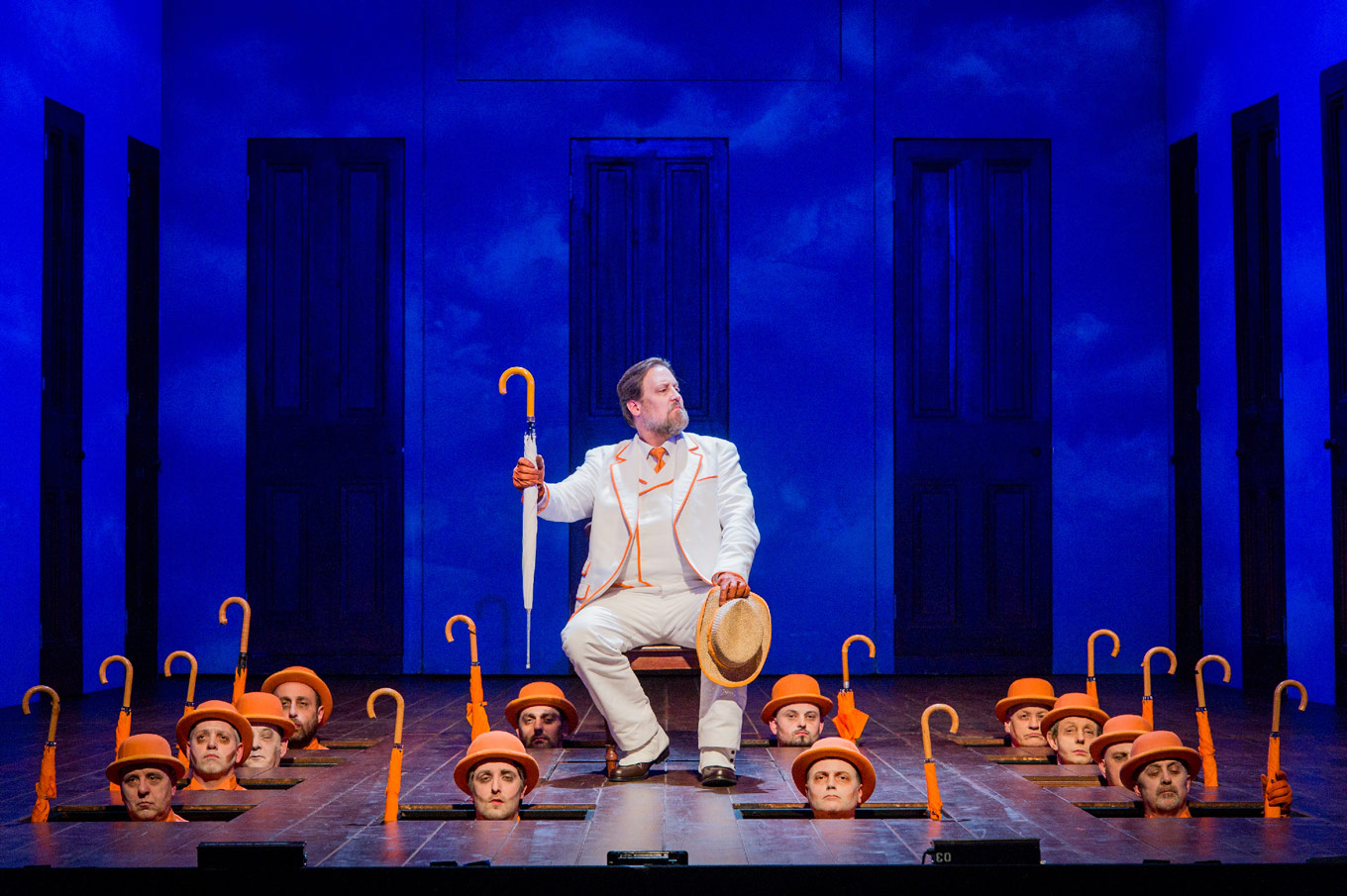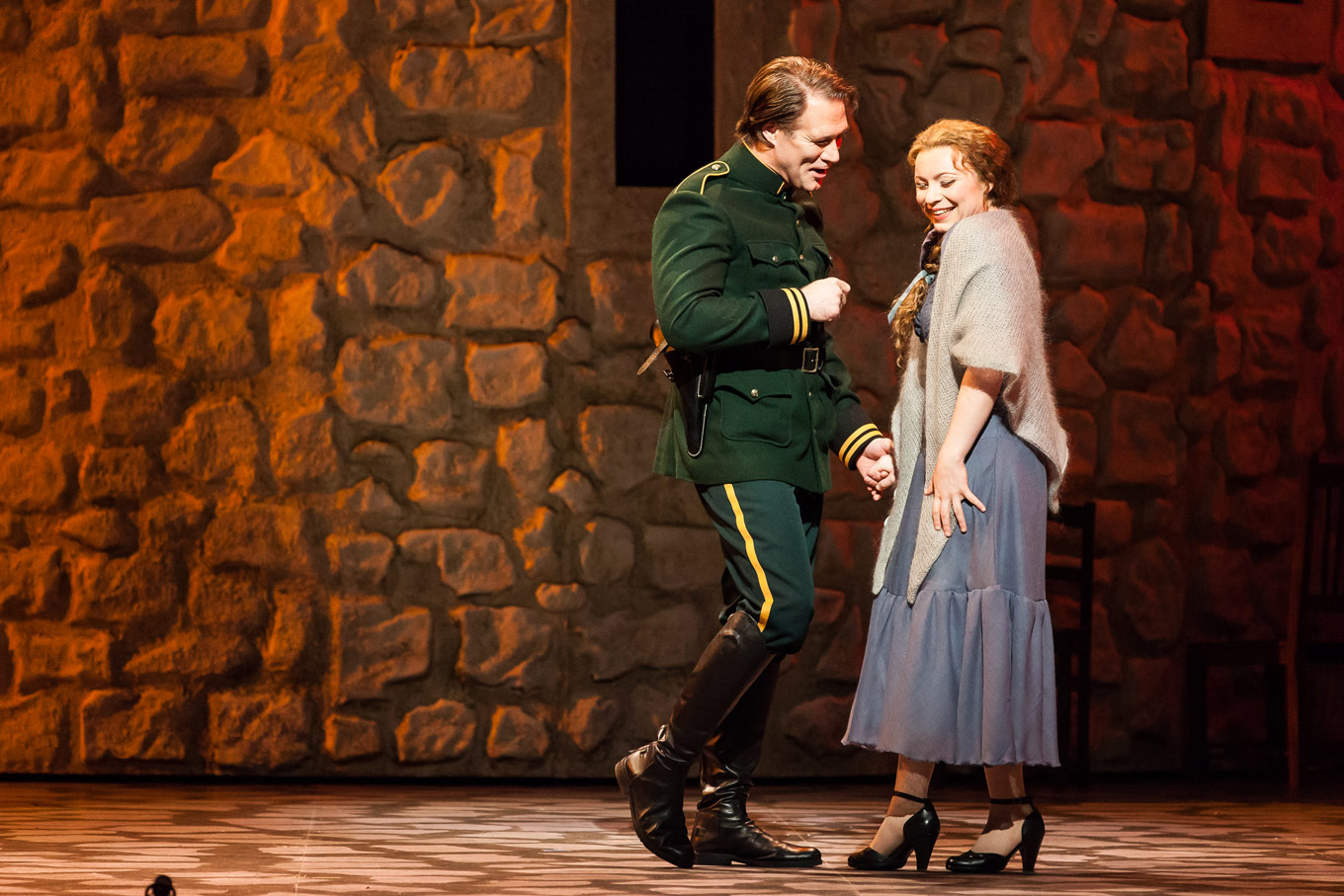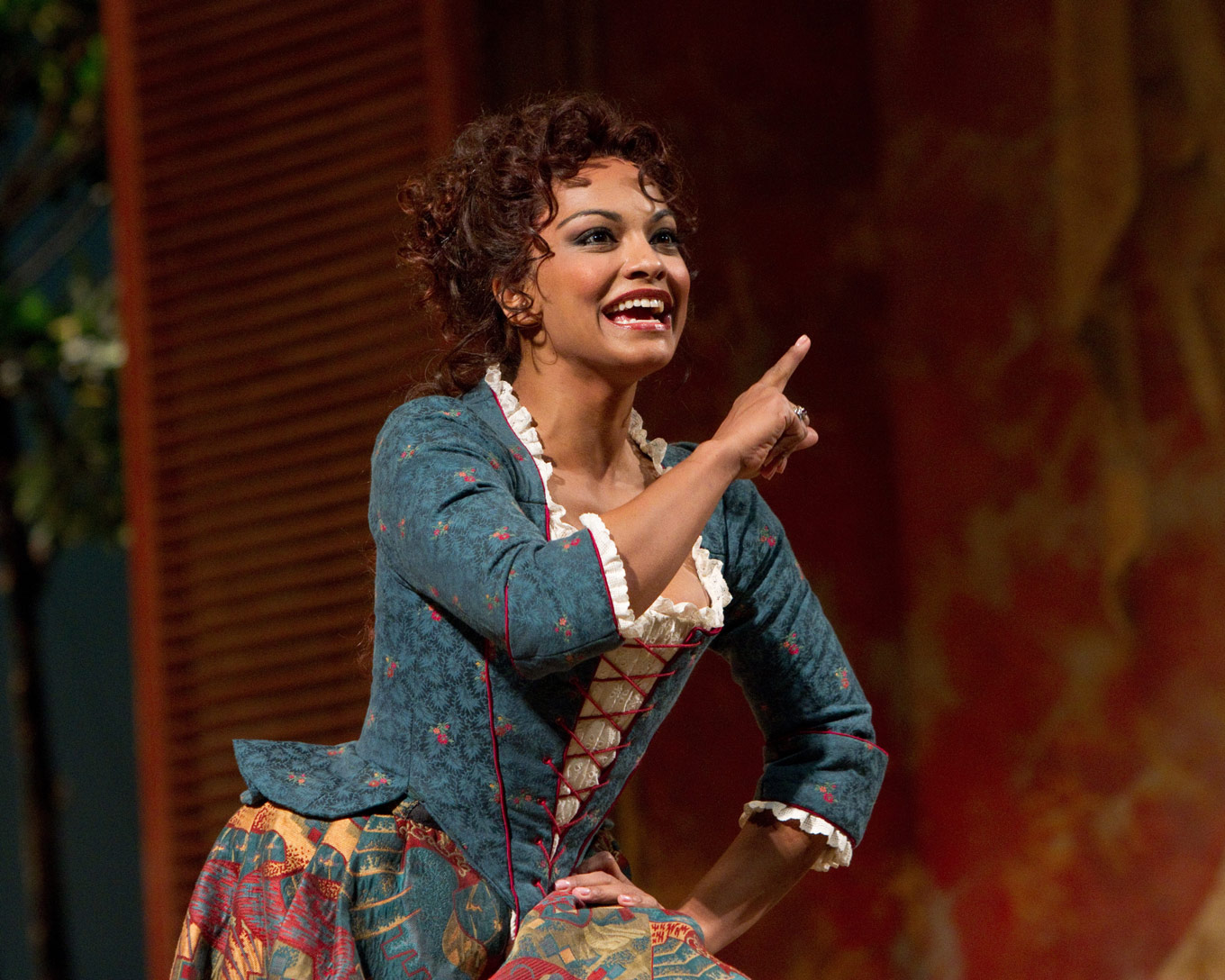
4 Opera scenes that should have happened
HumourEver watch an opera and think, “I wonder if those two characters would be friends”? Seems odd, maybe; I’ve always done it with TV and film characters, and when I got into opera, the trend continued. Like, I used to think about whether or not the Lion, the Tin Man, and the Scarecrow would all be friends if Dorothy weren’t in the picture. Or in The Little Mermaid, what it would be like for Eric to hang out with Sebastian.
In opera, it’s all about imagining that beautiful hypothetical scene, like Suzuki getting a rage aria directed at Cio-Cio San (Madama Butterfly), where she just shouts “He’s never coming back!!” over and over (see photo above). Or the sad hilarity that could be the Marschallin sitting down for a forced-politeness tea with little Sophie (Der Rosenkavalier). I even get a dorky kick out of picturing Zerbinetta and Bacchus (Ariadne auf Naxos) making small-talk at a party. She’d be doing her usual flirty tactic for working the room, and Bacchus would just keep waxing philosophical, missing all of Zerbinetta’s innuendos.
So here are four scenes that I’d pay extra to see inserted in some of my favourite operas:
1. Mimì meets Musetta
Musetta definitely meets Mimì; there’s an implied tangential friendship that comes out of Mimì and Rodolfo’s relationship (double dates and all that), and a director often adds a flurried and silent air-kiss between the ladies at Café Momus, in the joyous commotion after Musetta’s grand reconciliation with Marcello. Yet, these two ladies never formally interact.
I picture them sitting over drinks with the guys, painfully forcing awkward small talk while the boys are being boys. By about outing three, Musetta and Mimì realize they have absolutely nothing in common. I mean, they’re alike enough to be annoying to each other, but different enough to have zero conversation material. Mimì sees Musetta as a spoiled attention-grabber, and Musetta thinks Mimì is pouty and self-righteous. Neither of them are wrong, if you ask me.

2. Sarastro catches up with the Queen of the Night
Oh, to be a fly on the wall at the reunion between these two famously ambiguous villains/protectors. The Queen has been hollering about Sarastro’s wrongdoing, and Sarastro sighs tiredly about “proud women” who talk too much. The scholars eat this relationship up, saying the Queen is unfairly portrayed as a villain, that Sarastro is the epitome of good and reasonable things; others say they used to be married and had a kid named Pamina.
I suppose all this speculative fun would disappear if Mozart had included a scene where the Queen and Sarastro have a heart-to-heart (or a revival of their eons-long feud). Still, doesn’t the curiosity get to you? Would it be like Tytania and Oberon, sword-fighting with natural disasters with too much pride? Or would it be like the Count and Countess at the end of Le nozze di Figaro, with someone apologizing to the other for being an ass? So many what-ifs. Schmopera should commission a Zauberflöte spin-off.
 Scott Wilde as Sarastro in Welsh National Opera’s production of The Magic Flute. Photo: Robert Workman.
Scott Wilde as Sarastro in Welsh National Opera’s production of The Magic Flute. Photo: Robert Workman.
3. Carmen meets Micaëla
I figure this scene was left out of Carmen because it’s basically already written. Carmen would be able to smell Micaëla’s fear a mile away, and the poor girl from back home probably wouldn’t get a real word in. If Micaëla ovaried up unexpectedly, she could play either of the guilt cards (the “Carmen, real women don’t smoke” card, or the “Carmen, stop taking advantage of my broken boyfriend” card).
Carmen could educate Micaëla, too. There are clearly some big parts of José’s life to which his childhood sweetheart is oblivious; she could stand for a little lesson from Carmen, who sees his darker side. Who knows? Maybe after a bottle or two of Spanish wine, the ladies might have more in common than they thought. It could be something out of a Woody Allen film.

4. Despina educates the men
Everybody loves Despina, because she’s the closest to a voice of reason that the audience gets. As much as I want her to grab Ferrando and Guglielmo by the ears, sit them down and scold them (“What is WRONG with you two? How insecure ARE you? &$%#ing sociopaths!“), Despina’s wiser than I am, and knows better than to try and swim upstream. Since there’s money in it for her, and the four lovers are gullible enough to get dragged into all of this in the first place, Despina decides to go with the flow.

I always wonder what she’d say to Ferrando and Guglielmo, given the chance for a private chat with them. Would she boost their tender egos and applaud their “game”? Would she be a double agent and inform on the women? Or would wily, unbiased Despina satisfy my need for a frank discussion with the men? She sits them down to speak on behalf of “tutte,” and explains that lying to your girlfriends, no matter the convoluted reason, is not going to give you a good idea of their hypothetical fidelity. Maybe a comedic buzzkill, but not if she also takes the opportunity to turn the men against Alfonso, for an added twist.
What’s your hypothetical scene of choice? Let us know in the comments below!


Comments